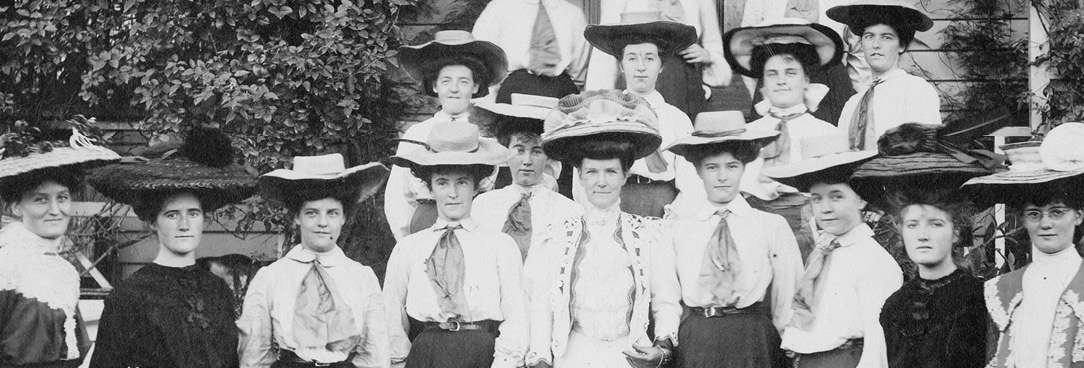
Author: Kate Follington
It's impossible to discuss the Australian and global suffrage movement without talking about Melbourne woman Vida Goldstein. One of the women who tirelessly traveled across Melbourne and Victoria gathering 30,000 signatures for the 1891 Women's Suffrage Petition.
Aimed at securing Victorian women the right to vote. The petition was the largest known petition of the 19th Century, at 260 metres long,and it was also the catalyst for similar petitions in New Zealand and England.

World famous Australian suffragette Vida Goldstein
Inspired by her mother Isabella, a vocal suffragist and worker for social reform, and the inspiring speaker and well traveled feminist Annette Ellen Bear-Crawford, Vida was well educated and passionate about reformist legislation, often attending parliamentary sessions in Melbourne to learn about political procedures. She was a very good looking woman and a witty public speaker, she helped to challenge the populist anti-suffrage claim that feminists were he-women who had 'never been kissed'. An influential speaker, she also won the support of politician's wives.
By 1899 Goldstein was the undisputed leader of the radical women's movement in Victoria and was focused on securing Victorian women the right to vote.
'In essentials unity; in non-essentials liberty; in all things charity' Vida Goldstein.
She was known as a witty and impressive speaker because she was able to handle the most abusive hecklers. Between 1891 and 1919 she helped to educate women about political process through her publication the Woman's Sphere and her touring lecture series. She was vocal about women's equality, including equal property rights, raising the age of marriage and consent to 16, women's worker rights, pacifism and in her older years improved access to birth control. She was a known lobbyist and directly influenced many Acts of parliament. Her most famous was her cost-living-table which influenced the Harvester Judgment which established the concept of a basic wage.
Vida 'was the biggest thing that has happened to the woman movement for some time in England'. Melbourne journalist for The Argus Alice Henry
Of all the Australian suffragettes Goldstein was the only one to develop an international reputation. She visited England and the United States and always drew huge crowds. In 1902 she spoke at the Woman Suffrage Conference in the United States and was elected secretary. Women in Australia were given the right to vote in the Federal election in 1902, and Goldstein was one of four women to be nominated for election, and went on to run for the Senate as an independent throughout the First World War. The first of such women in the British Empire. Australia and New Zealand were trail blazers in securing women the right to vote.
It was the 1891 Women's Suffrage Petition which kick started Vida's career as an activist, lobbyist and aspiring (inspiring) politician.
The petition is a treasure in the Public Record Office Victoria Collection, and is on display at the Museum of Australian Democracy at Eureka for a time from October 2014 - January 2015.
Material in the Public Record Office Victoria archival collection contains words and descriptions that reflect attitudes and government policies at different times which may be insensitive and upsetting
Aboriginal and Torres Strait Islander Peoples should be aware the collection and website may contain images, voices and names of deceased persons.
PROV provides advice to researchers wishing to access, publish or re-use records about Aboriginal Peoples
